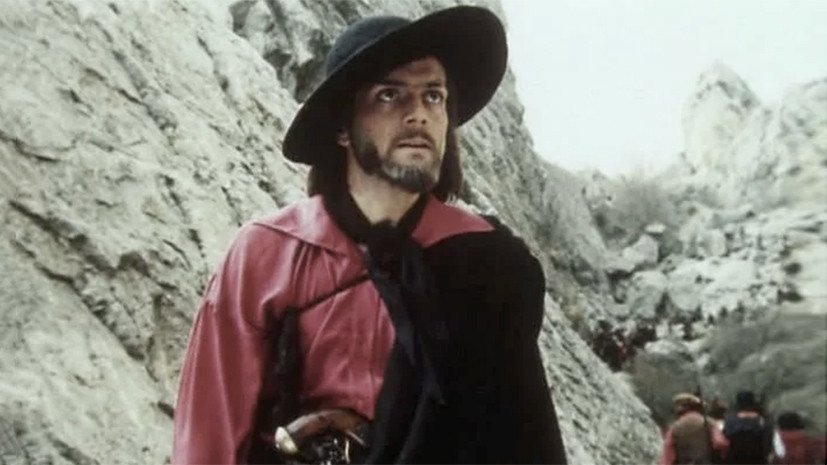On Sunday, June 23, the Soviet and Russian theater and film actor Andrei Kharitonov died on the 60th year of his life. About this on his page on Facebook reported documentary director Vitaly Mansky.
“Did not become Andrei Kharitonov. I made this photo exactly 40 years ago, during the filming of "The Gadfly" in Lviv, when Andrei and I just met. After this film, he became a real star. And then something broke. And he left, unfortunately, he was almost forgotten. Life is such a thing ... My condolences to everyone who remembers and loves him, ”the cinematographer wrote on his page on the social network.
Later information about the death of the artist confirmed his wife Olga Smiryagina. According to her, Kharitonov’s funeral will be held in Kiev. The date, time and place of parting with the actor has not yet been announced.
"Andrew today is gone ... He has died from all beloved, talented and unusually beautiful people," - she wrote in Facebook.
Officially, the actor was not named the cause of death. However, according to media reports, Kharitonov for several years struggled with cancer. During this period, the artist underwent several operations, in May last year he was hospitalized. Doctors did not rule out that the reason for hospitalization was intestinal obstruction. Kharitonov himself did not comment on such information and his state of health.
"Gadfly" made a real star
Andrey Kharitonov is from Kiev. His family had no relation to theater and cinema: his father worked as an engineer, and his mother - a teacher. He studied at the school with a physical and mathematical bias, was fond of drawing and even thought about becoming an architect.
Kharitonov's favorite art form was cinema. And after school, he opted for the acting profession. Kharitonov entered the Kiev National University of Theater, Cinema and Television named after Ivan Karpenko-Kary, and in the early 1980s debuted Arthur Burton in the Ovod mini-series based on the Ethel Lilian Voynich novel. Artists Sergey Bondarchuk and Anastasia Vertinskaya, already known at that time, became his partners on the set.
“Gadfly” immediately glorified the debutant: in 1981 Kharitonov was awarded the main prize of the TV festival “Golden Nymph”, held in Monte Carlo, and in 1982 - with the State Prize of the Ukrainian SSR Taras Shevchenko (together with Bondarchuk and the film director Nikolay Mashchenko).
Immediately after “The Gadfly”, Kharitonov appeared in the films “On the Pomegranate Islands” and “The Mysteries of the Holy Jura”, and also appeared in the television movie “Assol” by the creator of the animated tapes “Vovka in the Trident Kingdom” and the dilogy “Little and Carlson” by Boris Stepantsev. New success for Kharitonov turned into a film adaptation of the rock opera by composer Alexei Rybnikov and poet Pavel Grushko “The Star and Death of Joaquin Mureta”, staged by Vladimir Grammatikov (“Usatiy Nyan”).
In the mid-1980s, Kharitonov moved to Moscow and settled in the Maly Theater, where he soon became one of the leading artists. His repertoire includes roles in performances based on the novel "On the Eve" by Turgenev, on the plays "Fedra" by Racin and "The Profitable Place" by Ostrovsky.
However, Kharitonov did not leave the cinema: over the years of his acting career, he played in about 40 tapes, including “The Invisible Man”, “Free Wind”, “The Old Detective” and others. Secondary roles the artist performed in the film “The End of Operation Resident” and the series “The Life of Klim Samgin”, “The investigation is carried out by the experts: Boomerang”, “The Romanovs: Crowned Family” and “The Island of Unwanted People”.
To gallery page
In the early 1990s, Kharitonov changed roles and tried himself as a director. Inspired by a script inspired by a series of short stories by the symbolist poet Valery Bryusov, he shot the film “Thirst for Passion”, which tells about the relationship between a doctor and his patient. The film was awarded a special prize in the “Cinema for the elect” category of the Kinotavr film festival.
Later, Kharitonov acted as a director for television programs “Dream Factory” and “Films of Our Memory”. Soon he began to lead the author's TV program "Flash" on the channel "Culture", and later - the program "Implementation" on the channel "Star".

